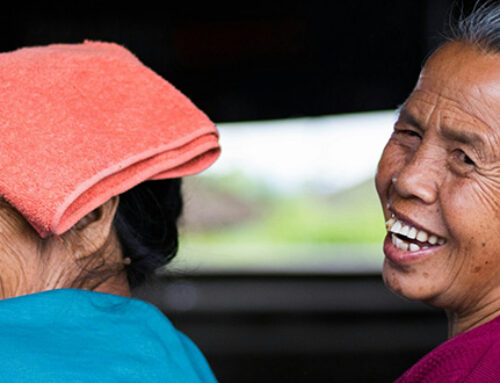She was successful by all expected standards: a lawyer, influential, and beautiful. A pillar of strength to her family and many others. A generous giver, always joyful, always willing to lend a helping hand. Yet, despite the grand resumé, her striking blue eyes were raining incessantly onto her oversized polka dot dress. As her counsellor, I remained professional and did not pass her the box of tissues, lest she thought it was unacceptable to cry during the session. She eventually crumpled her dress in her trembling hands and blew her nose in the folds of Gucci. After a while, she suddenly chuckled and uttered uncontrollable bursts of snorts and giggles. Her apologies were lost as Gucci tickled her nose and got revenge by inviting a wet sneezing fit, from which her perfectly trimmed hair could not escape. Between the laughter that followed, she blurted out that she had no reason to carry on living and was contemplating suicide.
Cases like these illuminate the unseen realities of people’s struggles―supposedly successful people who seem to have it all ‘together’. Years ago, I would have told ‘Lady Gucci’ to get over herself, be grateful for what she has, and to stop seeking attention. I could not fathom why people like her were suffering with depression or wanted to end their lives. As an immature counsellor at the time, I was unknowingly prejudice. I viewed each ‘Lady Gucci’ from a ‘cookie-cutter’ perspective.
Due to my involvement with anti-human trafficking organizations, I was invited to share on human trafficking during an awareness campaign, addressing a hall filled with ‘Lady Gucci’s’. While describing the atrocities of modern-day slavery taking place under our noses, in my hometown of Pretoria, I noticed some ladies becoming increasingly emotional. I thought it was because of the tragic stories of victims, and the hopelessness of the situation, but it was not.
A ’Lady Gucci’ approached me after the event, grabbing hold of my arm with urgency. Her distraught face was streaked unfashionably, betrayed by expensive make being fallible after all. She whimpered that what I had shared revealed to her the invisible chains which were imprisoning her. At first, I thought I had misheard. She repeated it. She confessed that beneath her perfectly groomed appearance, she was a deeply wounded soul, carrying the shame of childhood sexual abuse which she had never shared with anyone, not even her own husband. Her cultural background dictated that these ‘shameful’ experiences had to be suppressed, forgotten, and never spoken about. Somehow, she was to blame for what had happened to her. And no one believed her, nor protected her. Her sexual offender was an esteemed member of society and the church.
It struck me: emotional wounds have no age or gender preference, no respect for one’s bank account or qualifications, and no concern for Gucci. Cultural prejudice caused me to believe that ‘privileged’ people were somehow more protected from abuse, emotional pain, shame, addiction, depression, and other problems. I was humbled, and deeply ashamed of being ignorant to the pain, rejection, and identity crises brewing behind these well preserved ‘masks’.
The Holy Spirit convicted me to prepare messages of hope to those who were bound by ‘invisible chains’ of shame, guilt, self-loathing, and rejection, to name some. The essence of the new message that was growing in my spirit was not focused on ‘how to be set free from the chains’, but rather discovering one’s identity in Christ, by being introduced to a loving heavenly father. I based a simple message on Psalm 139, feeling insecure about it, uncertain of how it could make an impact. But I stepped out in obedience at anti-human trafficking events, and included this short message of hope, praying that broken hearts would receive the truth of God’s love and be set free from their ‘invisible chains’.
I never received much feedback on the message I brought, and probably never will. Perhaps the Psalm 139 message reached only a few broken hearts. Even if it had reached only one ‘Lady Gucci’ who was about to end her own life, it would have been worth it. God’s generous outpour of grace, forgiveness, and love is no respecter of persons.
Short Biography: Idalette ([email protected]) is a part-time co-lecturer at SATS in the Christian Counselling courses; she completed the Higher Certificate in Christian Counseling at SATS in January 2020 with distinction. She earned a degree in music (BMus (Ed), 1992) and honors in Educational Psychology (1993) at TUKS. As a part-time counselor with survivors of human trafficking and sexual exploitation, she is interested in effectively applying music- and art therapeutic techniques in trauma counseling, she is also a motivational speaker, writer, and spokesperson for Human Trafficking Awareness. She is married to Andrew, and they have three children and live in Centurion.




